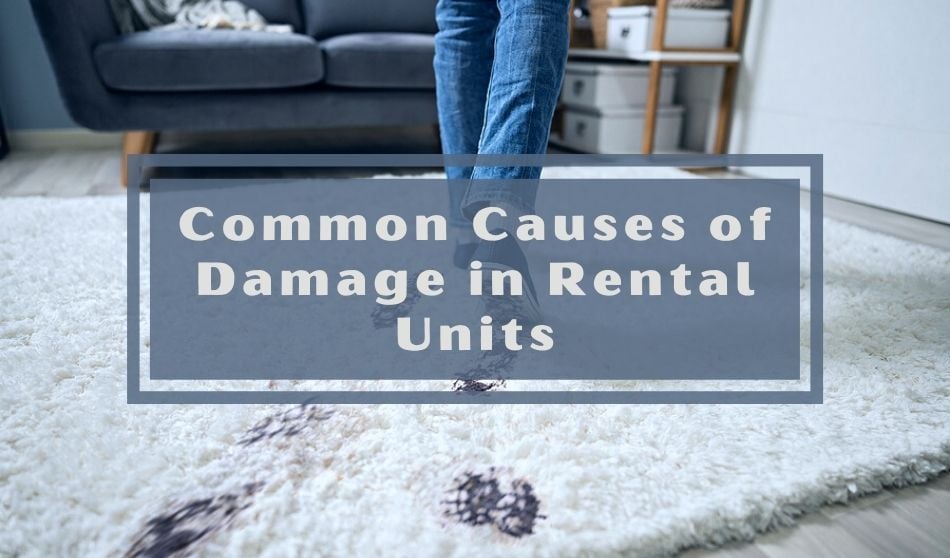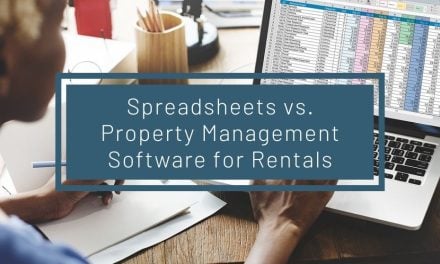After your tenants move out and you need to prepare the unit for your next ones, you may discover some issues left behind. The problem is that it can be difficult to tell the difference between wear and tear and actual damage. Knowing the difference between the two of these is key, particularly because you can use their security deposit to cover the costs of repairing the damage.
Wear and Tear Versus Damage
Normal and expected wear and tear includes faded paint, minor holes in the wall from thumbtacks or nails, minor scratches in the wood floor, and small dents in the wall from doorknobs. Actual damage that tenants have caused includes unauthorized paint jobs, major holes in the walls, stained or burned flooring, and broken doors.
The security deposit that you get from a tenant should be used for damage that is out of the ordinary, not for regular wear and tear. Likewise, if there are certain services you do when a tenant moves out, whether or not there is damage, then you cannot use the security deposit to cover it, even if there is damage.
The cost of basic cleaning, repairing, and prepping the unit for the next tenant is a cost of the business. Renters are not held accountable for this normal wear and tear on the property – it is the owner’s expense. Your state’s landlord-tenant laws will more explicitly outline what you can or cannot charge for at the end of the tenancy. Remember, tenant damages generally require extensive repair and cleaning and cost much more than general maintenance. These damages are often the result of a tenant’s abuse or negligence that is above normal wear and tear.
Holes
Generally, small holes from thumbtacks and small nails are generally considered to be wear and tear. If this is not the case, the lease should state if it is or is not allowed. If there are excessively large holes, the landlord can deduct the cost of the repair from the security deposit if the tenants do not properly repair it.
These large holes are caused by tenants in a variety of ways. Hanging pictures with large masonry nails, drilling carelessly through drywall, and improper hammering are all causes of this. There are also certain types of hardware tenants install that pull the plaster off of the walls when it is removed.
Even larger holes can be caused by roughhousing, physical arguments, or being careless with furniture. The tenant may repair these large holes, but if the repairs are done incorrectly, then it could end up being a hazard. This is especially true if they simply stuff something in the walls and then cover it, which is a fire hazard.
Flooring Damage
Both carpets and hard floors get worn down easily, and the fact that it’s dirty or worn down doesn’t mean that you can withhold a deposit from your tenants. However, if it is stained, burned, or ripped, that’s a different story. If the tenant spills something on the carpet, they are responsible for cleaning it up. If they can’t get the stain taken care of by the time they move out, then you may be able to use their deposit to cover the cost of hiring a professional to clean it. Keep in mind that (depending on your state’s laws) you can only charge the tenant for non-routine services, so if you hire someone to clean the carpets every time a tenant moves out, you wouldn’t be able to use the deposit for that cost.
If there is a massive stain in the middle of a room, or the carpet has be burned in places, or been ripped, then you would be able to use the deposit to replace the carpet completely. The same thing goes for gouges or massive water stains on a wood floor.
Stains, Burns, and Rips
Though commonly located on flooring, stains, burns, and rips can become an issue in other places, namely countertops and curtains. Countertops in particular can be home to a variety of problems. For example, if trivets are not used, then notable burn marks from hot pots and pans can show up. Cutting food directly on the surface of the countertop causes scratches that damage the surface of the countertop.
Curtains can also be damaged, especially if your tenants have pets. They can end up ripped, torn, and stained. If you don’t replace the curtains for each new tenant, then you can use the security deposit to get new curtains if your current ones are ruined.
Smoke Damage
If you don’t have a ‘no smoking’ clause in your lease, then you may end up unpleasantly surprised with the damage smoking can cause to your rental. The smoke from cigarettes can ruin walls, drapes, and ceilings, particularly if the tenant has been in there for a long time. The cigarette smell can also be incredibly difficult to get out of your drapes and carpets. If either is unsalvageable and needs to be replaced, the deposit can be used.
The nicotine and tar in cigarettes cause yellow discoloration on the ceiling. In addition to looking bad, this thirdhand smoke might cause health problems for your next tenants if it isn’t properly taken care of. Unfortunately, in order to give everything a fresh coat of paint, the walls and ceiling will need to be thoroughly cleaned first.
Paint
Tenants want to make wherever they live to feel like their own home. This decoration can come in a variety of ways, including unauthorized painting. If your tenant does end up putting unapproved paint on the walls, you are able to deduct the cost of repainting from their security deposit.






